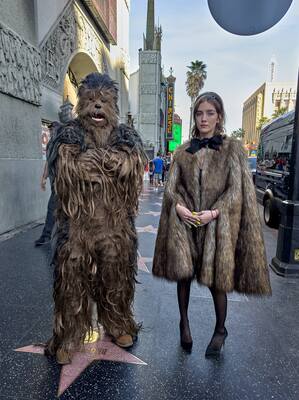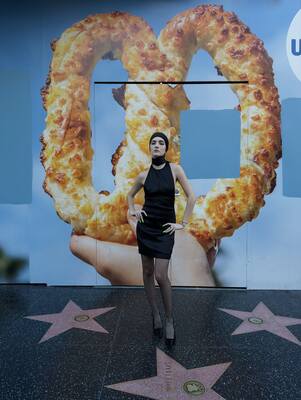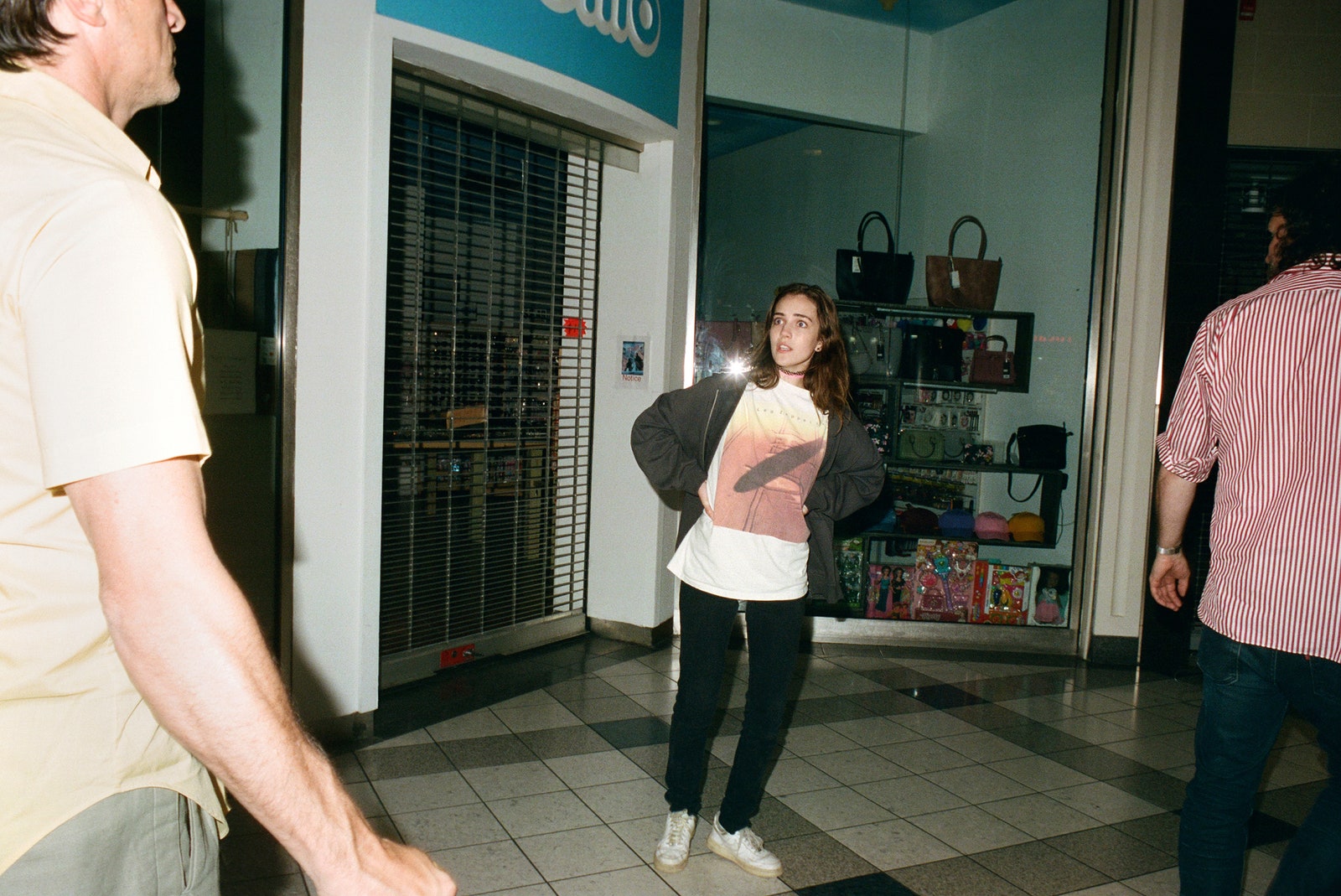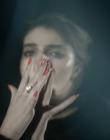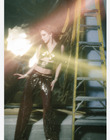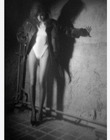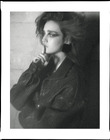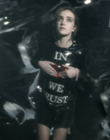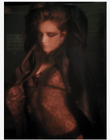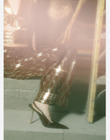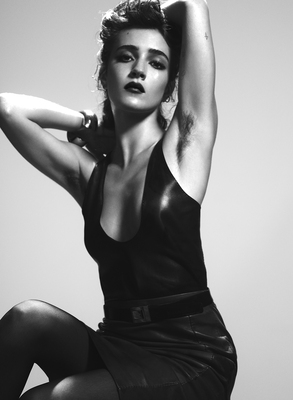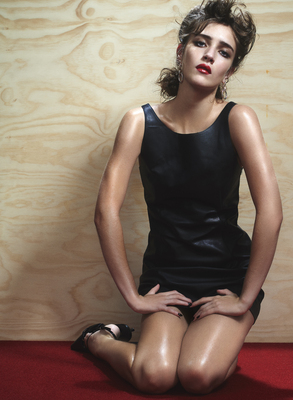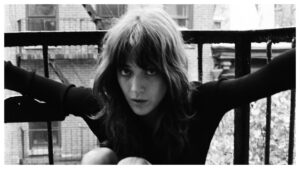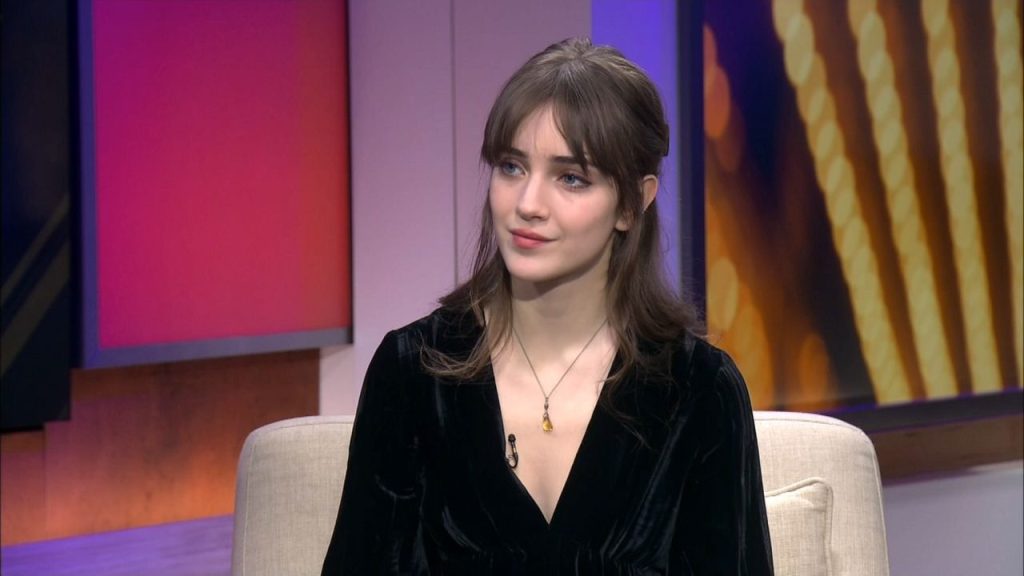Talia Ryder | Expectations Zero. Prepare for the Lift-Off.
Featuring Saint Laurent by Anthony Vaccarello Fall 2024 Collection, Via Issue 194, The Close Encounters Issue


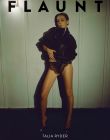

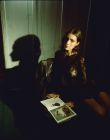
Ethereal and understated, Talia Ryder is indie movie catnip. Over the past few years the 22-year-old has become a main stay on the festival circuit, but you needn’t be a cinephile to recognize her. Ryder has also starred in a spate of commercial hits, from Do Revenge to West Side Story. Oh, and she portrayed Olivia Rodrigo’s replacement-cum-obsession in the music video for “deja vu,” which has been viewed a not-so-modest 462 million times on YouTube (“Oh my god, yeah, she’s the sickest,” Ryder says of the Gen Z pop icon.)
But despite a 450k Instagram following, where she uploads a steady stream of film promos, candid lo-fi life snaps, and photos of her at the MET Gala, Ryder’s not so famous that she can’t sit under some railings in SoHo, New York, to keep an eye on her friend’s bag. This is precisely where she’s perched when she pops up on our Zoom call above the screen name “Nicholas Cage.” She’s channeling Indie Sleaze: her hair falls around her in unmade waves, her face is eclipsed by giant aviator sunglasses, and she’s wearing an oversized T-shirt. She has no makeup on, save for her nails: one hand is painted hot pink, the other, blue. She fights to be heard over the wind and traffic on an unusually blustery August day, having lost her AirPods the day before. (“I think the wires are way chicer,” she reassures me, when I tell her I lost mine too.)
Born and raised in Buffalo, a port-town in New York State, Ryder moved to the city almost a decade ago when she and her sister were cast in Matilda the Musical on Broadway. Today, Ryder looks right at home in SoHo, and like every East Coast-raised artiste, is quick to pledge her allegiance to the city.
A few years after Matilda closed, Ryder was cast in Never Rarely Sometimes Always, a sobering independent film about abortion in America. The film sees Ryder’s character Skylar and her cousin Autumn travel to New York from rural Pennsylvania to procure Autumn an abortion without parental consent. Ryder’s was a poignant performance The New York Times described as “touchingly delicate.”
Not long after the film’s release, Ryder (if momentarily) switched gears, and was cast as part of the ensemble in Steven Spielberg’s remake of West Side Story. Then came commercial Netflix teen movies Do Revenge and Hello, Goodbye, and Everything in Between. Her maestro moment—and the film she’s most eager to talk about—however, was her role in The Sweet East, a picaresque satire directed by Sean Price Williams.
The Sweet East follows a manipulative, pseudo-innocent teenager as she traverses across the East Coast, trying on life for size with a trust fund of radicals—a Humbert Humbert-esque neo-Nazi professor, two pretentious cineastes (played by Jeremy O’Harris and Ayo Edebiri), and an Islamic extremist faction. “I just had this feeling that no one else could play Lillian, like that was mine—a sense of ownership or something,” she recalls of when she first read the script. “You get a crush on a character.” The Sweet East grapples with America’s socio-political climate, this time via gun violence and political extremism. Inevitably, it sparked some controversy, accused by The New Yorker as “playing fast and loose with the politics of hatred.” I ask if a difference in outlook would ever deter Ryder from a role. “Yes and no. But I think the really cool thing about movies and art is that the point is to disagree, and the point is to just start conversations. I think that’s also something that I really like about The Sweet East is that Lillian’s really a listener, she hasn’t figured out any of her opinions yet and she’s just listening, which is what I feel like no one right now is doing,” she answers. True to a 20-something English speaker, Ryder peppers her sentences with “like” and “kind of,” but comes of mature and considered despite having only graduated from high school in 2020, and as someone who takes their craft seriously.
Ryder tells me that she received some critical feedback after playing Lillian, a character who gets by, at least on the surface, on her looks and feminine wiles. “It was interesting to have conversations with those people and be like, ‘Wow, I completely disagree…She always has the upper hand,’” she muses. But bar encouraging naysayers to “give the film another watch,” Ryder is generally unperturbed by criticism. “It’s cool. I like disagreements and it’s cool to talk about and fight about things in film…I think growing up with the internet, like, hate comments, [don’t] really bother me. I think it’s pretty funny. I don’t know. It’s all pretend. Also, half those people, if they meet you in real life, wouldn’t say any of that. People get behind their screens and feel so big, so it’s just kind of whatever,” she says, nonplussed.
The commentary Ryder particularly enjoys comes by dint of Letterboxd, an app where film buffs review the movies they’ve seen, usually via plucky, internet parlance-heavy one-liners. “It’s like an Instagram comment section for movies,” she explains. Indeed, after a cursory scroll through The Sweet East’s page I can understand why she gets a kick out of it. “Vapes guns something something America” one user baldly surmises. “She’s so coquette female manipulator lana del rey vinyl,” quips another, of Lillian.
Ideological difference and propensity for criticism may not deter Ryder from a role, but a badly written character might. “Honestly, there’s a lot of stuff I read that I don’t even want to pursue because it’s…it’s…” she hesitates, not wanting to mince her words, “still people write girls a little funny. It’s still kind of old-school the way some of these scripts are written and the role that they’re making the young woman in the story play. It feels…” “Archaic?” I offer. “Yeah, really archaic,” she agrees.
But one script that was a resounding yes for Ryder was Little Death, an experimental psychodrama about the opioid epidemic starring Dominic Fike, Gaby Hoffmann, David Schwimmer, and Seth Green. I note that this is not the first time one of Ryder’s films has weighed in on America’s social problems. “I’m really drawn to projects that have something to say. Or even don’t really have something [but] that make you think about these things, cuz I mean, it’s what we’re living in right now. I think that plays a big part in the projects that I choose,” she explains. (Ryder has a post dedicated to safe abortion information on her Instagram profile).
In Little Death, Ryder plays Karla, an unmoored good-time girl who succumbs to addiction. It was a character she instantly fell in love with. “For someone that hasn’t fit in really anywhere or found her passion or joy in life, finding she has these friends and these drugs that she loves that make her feel connected to something and alive; it’s really hard when you know that that’s what’s hurting you and that’s killing you, but it’s also keeping you going. It’s a really sad and tricky cycle to get in and for
different reasons I really relate to that feeling…Karla’s the type of person where you don’t really see her on her phone and she’s experience-driven and she likes talking to people, and she likes partying and she just really puts herself out there, and just doesn’t get really anything back from the world, and I don’t know…It’s just, it be like that sometimes,” she says with a knowing laugh. “Sometimes you get no help.”
One might be forgiven for thinking that Karla’s plight isn’t something someone surrounded by family (“I have some good advisors. MiMi and Tre, they keep me in check,” she jests about her siblings) and hyper-success before they could legally drink could relate to. But although Ryder is grounded and firmly on the right path, as an actor, she’s somewhat familiar with how it feels to put something out there and not get much in return. “It’s hard not to get attached to something that isn’t yours,” she says of auditions that don’t go her way. “I feel like people don’t know how much rejection you face. I mean, just being an artist in general is so much rejection.” But, she counters, “a little rejection’s good. It makes you grit your teeth and do a better job next time. Or if I don’t get something, [it’s] like, ‘Oh shoot, I gotta write some more…I just gotta make my own.”’ (It’s an increasingly common lane-switch for young actresses navigating a precarious industry.)
And written, she has. For the past few years, Ryder has been working on a ballet movie about growing up in the city, which she’s planning to direct with her sister MiMi. So, how has she found the shift in medium? “Writing is a totally different thing. I think I’m just so comfortable performing, and that’s a very intimate thing, but writing feels even more intimate in a way.” Being on the other side of the casting table, too, has granted her some newfound perspective on the audition process. “It’s really impersonal, and you’re just trying to make your story come to life and your truth,” she observes.
While Ryder insists her only idol is Madonna, she admires acting work of Natalie Portman. “That makes sense,” I say, “You’re both quite still and understated.”
“I’m definitely not an understated person though, so it’s funny!” she retorts. Ryder makes a fair point, as an interviewee, she is animated and chatty in a way that a lot of her stoic characters are not. “When I was younger, I guess before Never Rarely Sometimes Always, I had been watching a lot of Natalie Portman movies. I just really fell in love with her honesty on screen. That’s the cool thing about movies, you get to watch people have these really private moments that you don’t really normally get to witness. I just feel like the way she—there’s just an honesty. I don’t know how to describe it other than honesty.”
Speaking of industry legends, as our call comes to a close, I work up the courage to ask Ryder why her Zoom name is Nicolas Cage. She bursts out laughing, “Oh!” she exclaims, apparently anticipating a more serious question. “I made my iCloud that in high school to AirDrop people on an airplane, and that’s my username now. Yeah. I mean, he’s the GOAT,” she explains. Now, however, when she’s hopping in and out of Zooms with Cage’s peers (like Ethan Coen, director of Honey Don’t! which Ryder stars in), it’s “kind of embarrassing.” But, as ever, she doesn’t let it faze her. “I think it’s kind of funny now.”
Perhaps it’s precisely this unflappable mien that gives Ryder her edge. She’s grateful to be here, (“I just didn’t expect this to be my life,” she admits) but she can see the humor in it all and isn’t counting her proverbial chickens before they’ve hatched. In her own words: “I have a lot of goals, but I have no expectations. I’m down for anything.”





